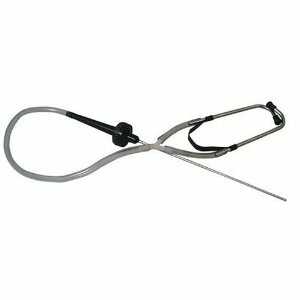31
5
On my new computer, my fan(s) is/are plain LOUD! Using SpeedFan, I find that my temps are all under 32 degrees C under my normal use (IDK how accurate that is but the CPU itself says 27 C).
The fan doesn't sound unbalanced and it isn't making sounds in rhythm (Not the usual rrrrrrrRRRRRR... rrrrrrrRRRRRR... rrrrrrrRRRRRR... rrrrrrrRRRRRR), just a constant fan. I am thinking about oiling the fans, but I can't decide if it is the PSU fan or a case fan or the CPU fan. If it's the CPU fan I will most likely just replace that with a quiet fan. How can I tell which fan is making the noise (if not multiple)?
One thing that I am thinking may be the problem is my CPU fan isn't PWM so would swapping that out help? There is no "linear voltage" or etc thing in BIOS so I think it may be running at full speed. Also, I could have too much airflow because it is also making a whistling noise that you can hear close to it that sounds like when I accedentially put part of the side cover over my floor vent to get it out of the way.


2why not oil them all – zinking – 2014-01-13T06:44:46.263
10did you put your ear near the various fans to see where the noise is louder? – ratchet freak – 2014-01-13T11:12:29.350
How new? If under warranty, see if they'll swap for you. – Carl Witthoft – 2014-01-13T13:10:39.797
@CarlWitthoft It's a home build. – Anonymous Penguin – 2014-01-13T23:34:59.270
For the whistling noise, try to determine it it's due to a poor-fitting cover or some such that's allowing air through where it shouldn't. If so, a bit of tape or electrician's putty in the area may help a lot. – Daniel R Hicks – 2014-01-14T12:02:29.733
1And this laptop (Vaio) had a problem (loud rattle from the fan) that was apparently due to a wire banging against a thin metal fan shroud. Sony fixed it under warranty, but others reported fixing theirs by simply moving the wire. So look for banging things. – Daniel R Hicks – 2014-01-14T12:04:48.900
@DanielRHicks It doesn't seem like that it is a smooth but kinda loud. It's no where near the worst one that I've ever heard but when I'm coding for a long time it can get annoying. – Anonymous Penguin – 2014-01-14T21:54:39.320
I could also be the hard disk. – StackedCrooked – 2014-01-17T06:42:54.953
The main topic question was about fans. Computer noise in general should probably be a separate discussion. That being said, mechanical vibrations can cause the case to make its own harmonic noise. For example, if I make my case's thumb screws too tight, it makes an annoying groaning noise. – Hefewe1zen – 2014-01-18T01:50:39.443
Make sure it isn't the hard drive, I had one that sounded like that and now the hard drive no longer functions - to be more specific, it died half an hour after I turned it on! – L.B. – 2014-05-30T23:13:27.893